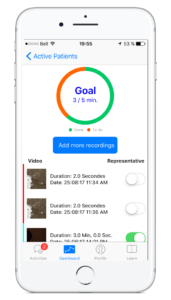Apple ResearchKit – Crowdsourcing Medical Research

Apple ResearchKit – Crowdsourcing Medical Research. Is it a good idea by Apple? Why is Apple well positioned to deliver such a framework? Has it been successful?
“When you have large number of people participating in research, your insights into the condition, increase exponentially. With ResearchKit, we’re getting day by day assessments on how people are doing,” Ray Dorse, MD, MBA, University of Rochester Medical Center.
The Gist
Apple’s ResearchKit was launched in March 2015 with the goal to improve medical research, most definitely an aspirational and inspiring goal. In the last 3 years medical research studies have been initiated by for profit companies, nonprofits organizations and medical centers, with almost 20 in its first year, (see attached for examples studies launched in 2016). The medical community weighed in and laid out two general potential outcomes from the consumer electronics company move: 1) Enable better insights into medical conditions 2) Allow increased personalization and better care to patients.

Wait, What Is It?
ResearchKit is an open source framework, which is meant to allow researchers and developers to create apps, much like for the Appstore, but geared around furthering the cause of their medical research. Apple has built into the framework ready made modules that the community could build from. These apps will enjoy access to patients vitals, (i.e. heart rate, steps, calorie use etc), which are already constantly being acquired by Apple, (dubbed HealthKit).
Apple Platform Playbook?
Interestingly, this could be called a another “Platform move” by the CA based tech giant. This isn’t a launch of a single app or dozens of apps. This isn’t a Pharma company giving out sensors based medical hardware to improve their clinical trials. This isn’t a 3rd party app launched on Apple’s Appstore accessing vitals via the phone. This is a play, in which Apple lays out the infrastructure, coupled with ready-made parts and tutorials, in the hopes that a community will adopt it and flourish.

Ok, But Why Apple?
Despite being characterized as an over simplified framework simply adding UI sugar to researchers’ studies, many believe it is an easy to use and painless solution to actually distribute health research via enabled apps. I believe there are a few reasons why Apple was and is well positioned to lead a sizable impact on this space:
- Apple is well regarded in the industry and by mass users as being obsessive around user data privacy, as exemplified by Tim Cook’s recent stance against the FBI in the case of the San Bernardin massacre. This is key in medical research.
- Apple has a wide penetration with 1.3 billion monthly active devices. That’s plenty of potential research volunteers. All within reach as ensuring latest software updates adherence is key here, compared to google’s android historically lower ability to ensure consistency across the fragmented physical hardware base.
- Apple has plenty of cash to pour into an initiative such as this with no predictable, bankable revenues. Rather, this can be perceived as a contribution into a great cause and an investment in differentiating iOS devices vs. competition.
Apple’s move quite simply, turns every one of its users’ mobile devices’ into a medical crowdsourcing tool. It offers access to a huge volunteer base and it’s a great method to reach the most intimate of data = people’s medical health vitals and disease status, in a scalable way, which is actually easier and more effective than what existing traditional research has offered so far.
Where are we 2-3 years in?
The launch of this framework and the subsequent apps and research taking place on top of ResearchKit is not without its challenges. Apple’s hopes for more diverse audience of volunteers has been critiqued since it is limited to only iOS device holders, usually higher income individuals. Feedback from some researchers claims the pool of volunteers is skewed towards a younger, ethnically homogenous, male, population, which tends to reside around tech savvy regions such as SF.
Above all the chatter are some very compelling uses of ResearchKit, which include a team at Mt. Sinai’s Asthma app that collected data for a few days on more than 2,000 people daily, as opposed to traditional survey method that were based on a sample taken once per person. The results showed a connection between increased probability of asthma attacks in summer as opposed to spring. Another example is a team at Johns Hopkins working to use the Apple Watch to predict seizures. With such discoveries and inspirational goals, who can predict how far the impact of ResearchKit will go?
Sources:
- https://www.apple.com/researchkit/ (video)
- http://blog.appliedinformaticsinc.com/researchkit-apps-and-studies-launched-in-2016/
- https://www.polidea.com/blog/exploring-apples-open-source-researchkit-and-carekit/
- https://www.advisory.com/daily-briefing/2017/05/31/apple-kit



Thanks for a great post! Apple Health and other aggregators of phone data definitely represent a huge opportunity. One big question for these ventures to tackle is that of privacy: how to balance the value of leveraging all of this data, with the privacy and security concerns that consumers have. In the post itself, Tim Cook is presented as a champion of privacy, but for Apple Health to be successful at the crowd-sourcing game, they might need to gain permission to share user data. Given the recent news surrounding Facebook, tech companies may need to be ever more careful with how user data is used, and how permissions are obtained.